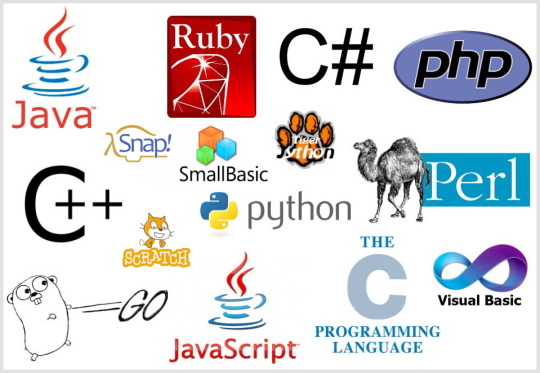#Java Basics
Explore tagged Tumblr posts
Text
Java Basics: A Comprehensive Guide for Beginners
Java is one of the most popular and widely-used programming languages in the world. Known for its versatility, platform independence, and security features, it is the go-to language for many developers when building applications across multiple platforms. Whether you are developing web applications, mobile apps, or complex enterprise systems, learning Java is a crucial step in your programming journey.
In this blog, we will cover the fundamental building blocks of Java, often referred to as “Java Basics.” By understanding these essentials, you’ll be well on your way to writing efficient and effective Java programs.
—
1. Java Data Types
In Java, every variable has a specific data type that determines the kind of data it can hold. Java has two primary categories of data types:
1.1 Primitive Data Types
Java provides eight built-in primitive data types that are used to store simple values. These data types are not objects and are stored directly in memory. They include:
byte: A 1-byte (8-bit) integer value, ranging from -128 to 127.
short: A 2-byte (16-bit) integer value, ranging from -32,768 to 32,767.
int: A 4-byte (32-bit) integer value, commonly used for numeric operations. It has a range from -2^31 to 2^31-1.
long: A 64-bit integer, often used when int is not large enough. Range: -2^63 to 2^63-1.
float: A 32-bit floating-point value used for precise decimal calculations. For example, it is used in complex mathematical operations where decimals are involved.
double: A 64-bit floating-point number, more accurate than float.
char: A 16-bit character that stores single Unicode characters, e.g., ‘A’, ‘B’, ‘3’, etc.
boolean: A data type that stores two possible values: true or false. It is primarily used in logical operations and control flow.
1.2 Reference Data Types
Reference types include objects and arrays. These types are stored in heap memory and include the following:
Strings: Although not a primitive type, strings are widely used in Java for text. Java provides a String class to work with sequences of characters.
Arrays: Java supports arrays, which are used to store multiple values of the same type in a single variable, e.g., int[] numbers = {1, 2, 3, 4};.
Objects: Objects are instances of classes, and they have properties and methods.
—
2. Variables in Java
A variable is a container for storing data values. In Java, variables must be declared with a specific data type before they are used. Java allows three types of variables:
Local Variables: Declared inside a method or block of code. They must be initialized before use.
Instance Variables (Non-Static Fields): Defined inside a class but outside any method. These variables hold different values for different instances of the class.
Class Variables (Static Fields): Declared with the static keyword inside a class but outside any method. They share the same value for all instances of the class.
Variable Declaration and Initialization Example:
int age = 25; // Declaring and initializing a local variable double price; // Declaring a variable (needs initialization before use) boolean isActive = true; // Declaring and initializing a boolean variable
—
3. Operators in Java
Java provides a wide range of operators that perform operations on variables and values. Operators are categorized as follows:
3.1 Arithmetic Operators
These operators perform mathematical operations like addition, subtraction, multiplication, etc.
+ (Addition)
– (Subtraction)
* (Multiplication)
/ (Division)
% (Modulus) – returns the remainder
3.2 Relational Operators
These operators compare two values and return a boolean result (true or false):
== (Equal to)
!= (Not equal to)
> (Greater than)
< (Less than)
>= (Greater than or equal to)
<= (Less than or equal to)
3.3 Logical Operators
Logical operators are used to combine conditional expressions:
&& (Logical AND)
|| (Logical OR)
! (Logical NOT)
3.4 Assignment Operators
Assignment operators are used to assign values to variables:
= (Assign)
+= (Add and assign)
-= (Subtract and assign)
3.5 Unary Operators
Unary operators are used with one operand:
++ (Increment)
— (Decrement)
3.6 Bitwise Operators
These operators perform operations on bits of numbers:
& (AND)
| (OR)
^ (XOR)
~ (NOT)
—
4. Control Flow in Java
Control flow statements allow you to manage the flow of execution of your code. The key control flow statements in Java include:
4.1 If-Else Statements
The if-else construct allows you to conditionally execute code.
if (condition) { // Code to execute if condition is true } else { // Code to execute if condition is false }
4.2 Switch Statements
A switch statement allows you to execute different parts of code based on the value of an expression.
switch(expression) { case value1: // Code block break; case value2: // Code block break; default: // Code block }
4.3 Loops in Java
Loops allow you to execute a block of code multiple times. Java supports three types of loops:
for loop:
for (initialization; condition; update) { // Code block }
while loop:
while (condition) { // Code block }
do-while loop (Executes at least once):
do { // Code block } while (condition);
—
5. Java Methods
A method is a block of code that performs a specific task and is executed when called. Java methods can accept parameters and return values.
Method Syntax:
public returnType methodName(parameters) { // Method body return value; // Optional, based on return type }
Example:
public int addNumbers(int a, int b) { return a + b; }
Calling Methods:
Methods are called using the object of the class or directly if they’re static.
int result = addNumbers(10, 20);
—
6. Classes and Objects in Java
Java is an object-oriented programming language. This means it revolves around classes and objects.
Class: A blueprint for creating objects.
Object: An instance of a class, created using the new keyword.
Class Example:
public class Car { // Instance variables String color; String model;
// Method public void start() { System.out.println(“Car started”); } }
Creating Objects:
Car myCar = new Car(); myCar.start();
—
7. Constructor in Java
A constructor is a special method that is used to initialize objects. It has the same name as the class and does not have a return type.
Constructor Example:
public class Car { String model; // Constructor public Car(String model) { this.model = model; } }
Creating an Object Using Constructor:
Car myCar = new Car(“Tesla”);
—
8. Arrays in Java
An array is a container object that holds a fixed number of values of a single type.
Array Declaration:
int[] numbers = {1, 2, 3, 4, 5};
Accessing Array Elements:
System.out.println(numbers[0]); // Output: 1
—
Conclusion
Java basics form the foundation for writing more complex and advanced programs. Understanding data types, variables, operators, control structures, methods, and arrays equips you to tackle more sophisticated topics like Object-Oriented Programming (OOP), collections, and Java frameworks. By mastering these fundamental concepts, you’re setting yourself up for success in your journey as a Java developer. Keep practicing and exploring, as learning Java is an exciting and rewarding endeavor!
0 notes
Text
OOPS NOTES
OOPS NOTES
View On WordPress
0 notes
Text
Crack the Code: A Complete Guide for Java Course

Are you interested in taking a Java course? Java has become quite popular among developers in recent years, prompting many people to enroll in Java courses to improve their skills and enhance their career opportunities. According to recent data, there has been a significant 45% increase in demand for Java developers this year, resulting in a 33% rise in job postings. The demand for Java developers is primarily driven by the growing prevalence of web applications and mobile apps that rely on Java technology. By enrolling in a Java course, you can enjoy several benefits, including the opportunity to enhance your problem-solving abilities, expand your job prospects, and gain the ability to develop complex and efficient software systems.
One of the great things about Java is its versatility, allowing developers to create both sophisticated applications and simple game scripts. Moreover, Java's compatibility across different platforms has made it a popular choice for many businesses. Major companies like Amazon, IBM, and Oracle have all adopted Java as the programming language for their internal projects, further solidifying its importance in the industry. Learn More : Java Course: Everything You Need To Know
0 notes
Text

#java#java tutorial#what is java#java programming#learn java#java basics#java with example#tutorialandexample
1 note
·
View note
Text
As a beginner in the programming field, I've finished learning Java basics and some of OOP concepts. What is the next step?
As a beginner in the programming field, I’ve finished learning Java basics and some of OOP concepts. What is the next step?
As a beginner in the programming field, you may be wondering what the next step is after you have learned Java basics and some of the OOP concepts. In this blog post, we will explore some options for you to consider as you take your next steps in programming. Whether you want to learn more about Java or explore other programming languages, we will give you some ideas to help you…

View On WordPress
0 notes
Text


Title Screen Art for my Sonic Fangame!!
(Background is subject to change- )
#miles tails prower#sonic the hedgehog#sonic fandom#tails the fox#sonic#tails and sonic#sth#sonic fangame#hehehe I love starting projects about things I’ve never done#never made a game and only have like basic Java and python down#so this is a process#I CANT EVEN DRAW BACKGROUNDS but here we are#I hate this#but I really wanna make this game
115 notes
·
View notes
Text
Post #83: Tumblr Opinion Poll by Python-Programming-Language, Question: Which programming resp. script language do you prefer?, 2023.
#programming#coding#coding is fun#i love coding#learning#education#i love programming#programming language#python#c++#c sharp#visual basic#small visual basic#i love python#php#scratch#html#css#java#javascript#script language#opinion poll
199 notes
·
View notes
Text
my (sarcastic) favorite part of autism is being great at high level stuff but dogshit at basic things.
im not bragging here because i was genuinely surprised by my ability, but like. in college i got A's in calculus 1 & 2 and calculus-based physics 1 & 2. i have failed math quizes in highschool just by making a bunch of arithmetic mistakes.
i cant remember which months have how many days. do NOT tell me the rhyme. i will NOT remember it. or the knuckles trick i will NOT remember it either.
How is it that i can maintain an almost 4.0 gpa but can't do this shit... thank you autism!
#im coding a game to practice javafx#which basically lets you do graphics#when coding in java#i was trying to calculate the score#and i was getting weird numbers#it was because i didnt understand the arithmetic...#i had to use desmos to make the score curve...#autistic#autism#actually autistic#neurodivergent#actually neurodivergent#nd#🍒🌹 rambles
75 notes
·
View notes
Text
24/2/24
helloo!
so the week has been rly busy but I'm 2 chapters away from finishing a couple syllabuses, only physics is a bit of a hassle with like 5 ish chapters left but I'll get that done during this week and then I will be finished!!
then all of my revision can start, also does anyone know what programming language is better for beginners? python, vb or java. this is my first programming language and the syllabus I'm doing requires one of these to be learned
but I'm rly proud of how far ive come!
#study aesthetic#study blog#study motivation#studyblr#studying#studyspo#computer science#python#visual basic#java#programming
10 notes
·
View notes
Text
Hey, does anyone here have a remote job for a shy boymoding lesbian that only knows how to speak 3 languages in broken grammar and nothing else?
#I also know basic HTML!#I technically also have a course diploma in Java but like I never used it outside uni#I'd also take migrating out but you have to pay accomodation
2 notes
·
View notes
Text
actually i just had the most random thought: fuck java.
#im dropping out of the course lol#its elective anyway#its just not worth waking up at 6 every saturday and having 6h of lab prep every week the guy is insane#also java sux ive come to realize#we wrote over 600 lines of code that does fuck all it enters staff and meals into a model of a restaurant#and finds shit like the most expensive order and the delivery driver who did the most deliveries#and it takes 600smth lines of code to do that like What?? KYS. K.Y.S.#and i truly do not get the point of private objects ur boxing urself in and making performing basic functions into a whole ordeal
2 notes
·
View notes
Text
Programming Languages For Youths And Adults ...

Programming Languages:
The best ways to learn programming are Snap!, Small Basic, Python, Small Visual Basic, Scratch and TigerJython.
Java
Ruby
C#
PHP
C++
Snap!
Small Basic
Python
Perl
TigerJython
Go
Scratch
C
JavaScript
Visual Basic
Post #234: Programming Languages For Youths And Adults, 2024.
#programming#coding#programmieren#small basic#education#coding for kids#python#scratch#snap!#java#ruby#php#perl#tiger jython#java script#visual basic#programming languages
6 notes
·
View notes
Text
Java for Beginners
Java for Beginners
View On WordPress
0 notes
Text
OOC // Bed time for me, sorry replies have been slow lately. I'm aware of them, I keep looking at them but my brain is being grouchy lately because of everything going on. Hopefully will get to some tomorrow.
Replies Owed:
hazbinned (w/ Vel)
musingularity (w/ Lilith)
theashen-fox (w/ Lilith)
sharp-shooter-no-more-moxxie (w/ Rosie)
poisonedspider (w/ Vel)
hamactiia (w/ Lux)
second-wife-playbook (w/ Thea)
amesouls ( w/ undecided )
copaceticjillybean ( w/ Lux)
Starter Owed:
runningskaven
tales-of-two-draconia
#OOC#java jabbers#// My partner and I both have ended up overwhelmed#basically by just the idea that we've moved out fully on our own now. Stuff to do. Things to know that we don't. Etc
2 notes
·
View notes
Text
i love having a good and normal memory (having to reteach myself python from the beginning every single time i want to update my bots)
#literally its like i have to learn all over every single time because it just WONT stay in my brain its so frustratig#im like this with c++ java and html too so its like why bother at this point#i literally took c++ classes for like two years and i just cant remember anything fucking at all#should see a doctor about this memory shit probably eventually *keeps making bots and relearning the codes instead*#anyway im going to update my no.1 bot Bill to be more :) and im really excited thats my little guy#rn all Bill can do is basic responces to trigger words and hes a shitty calculator also#teaching him to work as a calculator in discord was a pain in the ass tho please know that :|
5 notes
·
View notes
Text
i need to start my portfolio for artschool but that also means i have to learn 3 coding languages so i have a higher chance to be accepted into the game dev course fucking drops dead crying screaming throwing up
#i alr started w python but i also need to learn basics of java and c#MFW I CANT HAVE HASHTAGS IN TAGS DIES DROPS DEAD AGEHHRHR#as i was saying i need to learn C (sharp) too but also figure out how unity and unreal work (i am so going to make a game in fortnite lmfao)#and like so many diff ways to illustrate but alsoooo they dont want fanart :(((
5 notes
·
View notes